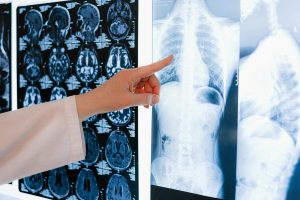If you are having the same signs and symptoms or any other autoimmune issue, don’t hesitate to schedule a free 15-minute exploration appointment.
Many people have heard about autoimmune conditions, where the body’s defense mechanisms turn against it and become a foe. Today I would like to bring attention to a different immunological issue: mast cell activation syndrome (MCAS). This condition is regularly overlooked or misdiagnosed, so raising understanding about MCAS, its indications, diagnosing and possible treatment alternatives is essential. Mast cells are a kind of white blood cell found all over the body, from under the skin and near lymph vessels, to the lungs and digestive tract (both small and large intestine). They are a significant part of the immune system, battling infections, taking part in the wound healing process, and helping to create new blood vessels.
Mast cells can be activated by microbial pathogens, physical injury, allergens, and foreign compounds. Once aroused, these cells release chemical mediators like histamine and neutral proteases. In MCAS, the number of cells is within the norm, but their function is compromised, resulting in an abnormal production of mediators. This results in a variety of symptoms and disorders, including cardiovascular, neurological, respiratory, gastrointestinal, and dermatological problems. Stress, infections, medication, certain foods and fragrances can trigger symptoms of MCAS. Symptoms come and go, and can be either mild or severe. In some cases, anaphylaxis can be triggered, which is a life-threatening allergic reaction.
In order to diagnose MCAS, a patient will often go through a series of tests to rule out more commonly occurring diseases with similar symptoms. Your GP will analyze the combination of signs, and check for allergies. If allergies are ruled out, the doctor may consider mast cell-related diseases such as MCAS or mastocytosis. The diagnosis of MCAS requires that certain criteria are met, and if satisfied, the doctor might prescribe drugs to target mast cell mediators. As there is no one-size-fits-all cure for MCAS, proper diagnosing is important for a few reasons. Knowing what the problem is allows the patient to focus on treatment, and also helps to control symptoms and avoid triggers.
One of the major mediators released during MCAS is histamine, which is involved in inflammation response. Elevated levels of histamine can cause inflammation in multiple organs, resulting in symptoms such as fever and fatigue. To control histamine levels, people should avoid histamine-triggering foods and take antihistamine supplements. The body also has a natural way of dealing with histamine with the enzyme diamine oxidase (DAO). However, various disorders, medications and histamine-rich foods can reduce the effectiveness of DAO. When diagnosing MCAS, our team takes the time to listen to the patient’s story, review their medical history, and map their personal timeline. This is key for individuals with MCAS, who suffer from symptoms in various parts of their bodies and need a holistic solution for their problems.
It is important to examine environmental, dietary, lifestyle, and genetic factors that can influence long-term health and complex chronic disease. If someone is experiencing similar symptoms or other autoimmune conditions, they can book a complimentary 15-minute discovery session.








